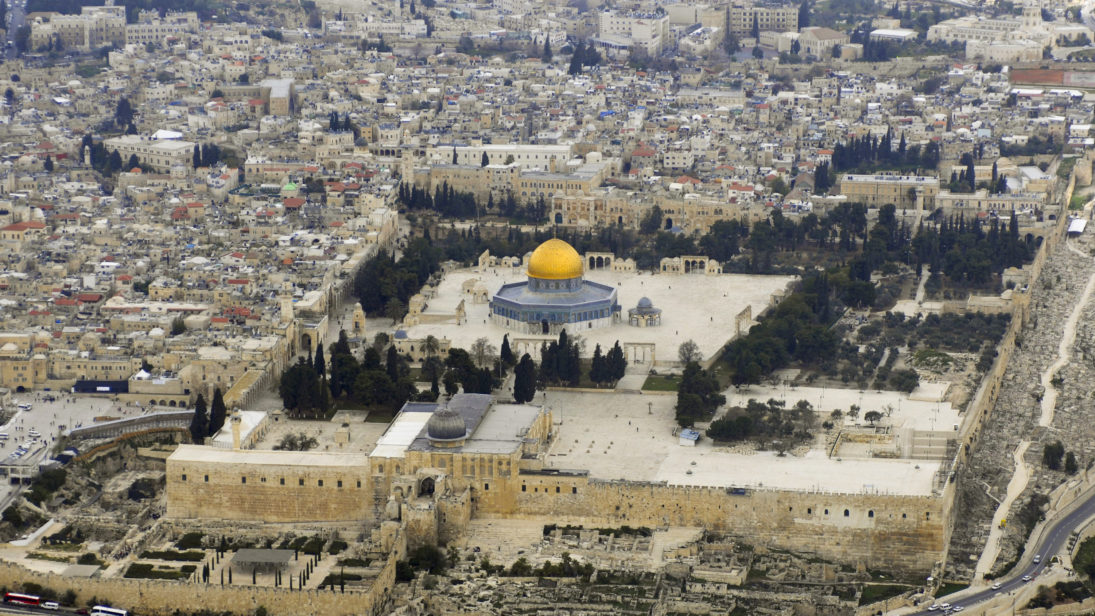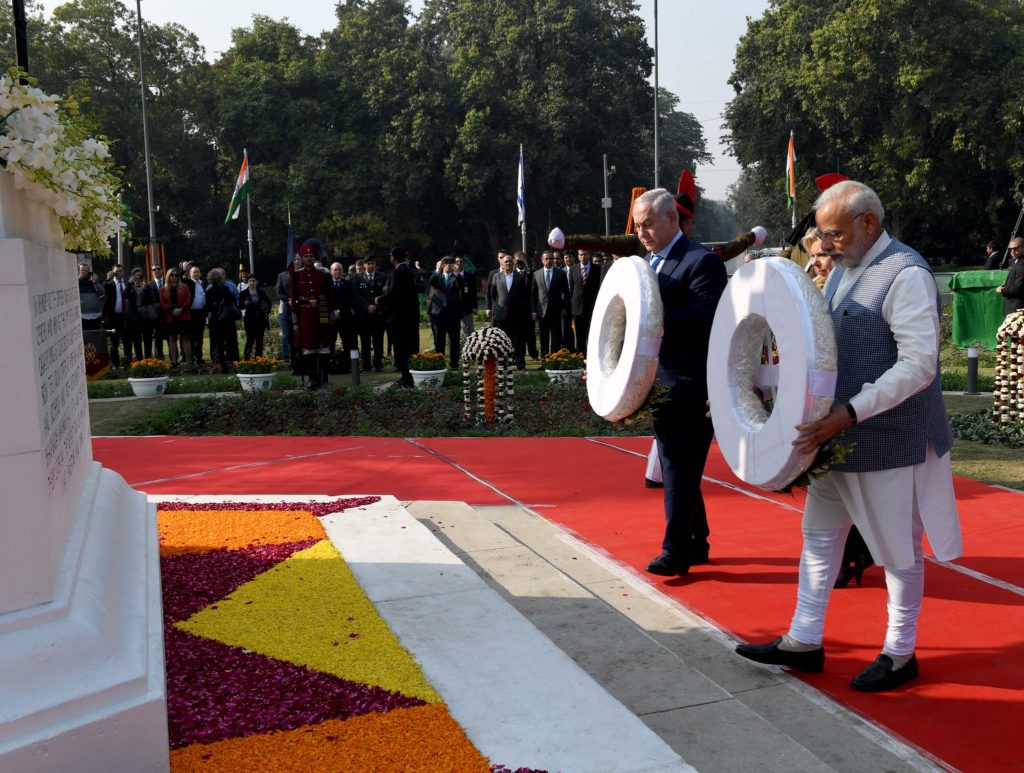
Following the attempted evictions of Palestinians in the neighborhood of Sheikh Jarrah, Israeli security forces have ramped up attacks and arrests in occupied East Jerusalem, including four raids on al-Aqsa mosque, among the holiest sites in Islam. The militant group and political party Hamas responded with rocket attacks into Jerusalem, as violence also erupted between Israeli settlers and Palestinian citizens of the occupied West Bank. The Israeli Defense Forces (IDF) are now conducting a blistering series of air raids and artillery shelling into Gaza. As of Friday May 14, at least six Israelis and 126 Palestinians, including 31 Palestinian children, have been killed, and more than 920 wounded.
The conflict’s global resonance—particularly against the backdrop of the final week of Ramadan, the holy month of fasting in the Islamic calendar—is clear. Misinformation about the escalating violence has proliferated on social media as governments and elected officials issue statements, and protests and crackdowns on protests occur worldwide, including throughout South Asia. India’s and Pakistan’s public response to the crisis in Palestine speaks to each country’s unique positionality to the Israel-Palestine conflict, as well as the goals of their respective ruling political parties.
India’s and Pakistan’s public response to the crisis in Palestine speaks to each country’s unique positionality to the Israel-Palestine conflict, as well as the goals of their respective ruling political parties.
In Pakistan, where Prime Minister Imran Khan has on several occasions compared the situations in Kashmir and Palestine, Khan has repeatedly addressed the crisis to highlight Pakistan’s influence among Muslim-majority countries and shore up support for his embattled Pakistan Tehreek-e Insaf (PTI) party. In recent years, Pakistan and Turkey have invested heavily in their bilateral relationship, including soft power initiatives like goodwill tours by a popular Turkish soap stars across Pakistan, as well as more conventional defense ties like arm sales and rumored co-manufacturing initiatives. It comes as no surprise, then, that Pakistani and Turkish government officials have discussed the Israeli attacks and affirmed their public support for Palestine. Shah Mehmood Qureishi, Pakistan’s Foreign Minister, announced on Thursday that Pakistan and Turkey were calling on the United Nations to hold a meeting on Palestine, adding that the two countries planned to jointly convene a ministerial meeting of the Organization of Islamic Cooperation.
Qureishi also called Saudi Arabia’s Foreign Minister, Prince Faisal bin Farhan al-Saud, to express concern about the attacks on Gaza, noting that last week’s statement from Khan and Saudi Crown Prince Mohammad bin Salman re-affirmed Saudi Arabia and Pakistan’s commitment to returning Israel and Palestine to their pre-1967 borders. While Saudi Arabia has not formally recognized the state of Israel, the Kingdom and Israel have quietly cooperated on a number of shared concerns in recent years. In light of purported fraying Pakistani-Saudi ties and a to-date tepid response from the Arab League over the Sheikh Jarrah evictions, it is perhaps unsurprising that Prime Minister Khan elected to use the crisis to publicly highlight Pakistan and Turkey’s cooperation. The violence in Palestine allowed Khan and Turkish President Recep Tayyip Erdoğan to reiterate their common visions and overlapping “Islamic values.” In so doing, they spoke both to their constituents and those living in Muslim-majority countries who may be unimpressed by their own governments’ response to the Israel-Palestine conflict.

India, meanwhile, has demonstrated a more tempered response to the crisis in Palestine. Historically, India’s rhetorical commitment to Nehruvian anti-colonialism and subsequent leadership in the Non-Aligned Movement meant that, at least publicly, India took a staunchly pro-Palestine line. Behind the scenes, however, India granted Israel de jure recognition and ties warmed over time. After India normalized relations with Israel in 1992, the countries enjoyed a brisk trade relationship, particularly in defense. In 2004, India inked an agreement to purchase several Israeli Phalcon warning and control systems, which Israel had initially attempted to sell to China before the United States scuttled the deal. In 2020, the India acquired two more Phalcons, cementing India’s position as the largest buyer of Israeli military technology. Israel is India’s second-largest defense supplier, behind only Russia.
Beyond this defense cooperation, Prime Minister Narendra Modi’s ruling Bharatiya Janata party (BJP) relies on the ideology of Hindutva to maintain its coalition, a brand of nationalism with rhetorical and theoretical parallels to the Israeli Prime Minister Benyamin Netanyahu’s right-wing Zionist ideology. Netanyahu and his party, Likud, imagine Israel as a religiously Jewish state, diverging from the more secular bent of earlier Zionists like David Ben-Gurion. Just as Netanyahu erases the historical divide between Mizrahi and Ashkenazi Jews to focus on the Arab “other,” portrayed as an external threat, so too Modi collapses differences of caste, class, and region among Hindus to imagine a singular, static Hindu identity in opposition to an often Muslim other, which Hindu nationalism conceives of as foreign to the subcontinent.
While Imran Khan and Shah Mehmood Qureishi have used their Twitter platforms to voice support for the Palestinians, to date neither Modi nor Indian Foreign Minister Subrahmanyam Jaishankar have made any statements on the conflict. This is despite the death of an Indian citizen in Israel from a purported Hamas rocket attack. Commenting fell instead to the Indian Ambassador to the UN T.S. Tirumirti, who lamented the death of an Indian national and called for calm in a Security Council meeting on Wednesday. Although Tirumirti criticized violence by all parties, he focused particularly on Hamas’s rockets, instead of Israeli settler evictions of and attacks on Palestinians or the IDF’s shelling and air raids on civilians in Gaza. This framing speaks both to India’s defense cooperation with the state of Israel, as well as the simpatico ideologies of the dominant parties in Israel and India.
Pakistan’s firmly pro-Palestinian reaction and India’s quieter response to the crisis speaks to both country’s positions on the global stage and their respective internal concerns.
Pakistan’s firmly pro-Palestinian reaction and India’s quieter response to the crisis, then, speaks to both country’s positions on the global stage and their respective internal concerns. Imran Khan has seized the moment to affirm both his own personal and the state of Pakistan’s support for Palestine. He has also reiterated Pakistan’s public diplomacy with its burgeoning ally, Turkey. Narendra Modi has preferred to highlight other issues, illustrating the current pro-Israel tilt of both the Indian state as a whole and the Hindu nationalist BJP.
***
Click here to read an updated version of this article in Urdu.
Image 1: Wikimedia Commons
Image 2: Avi Ohayon via Flickr


